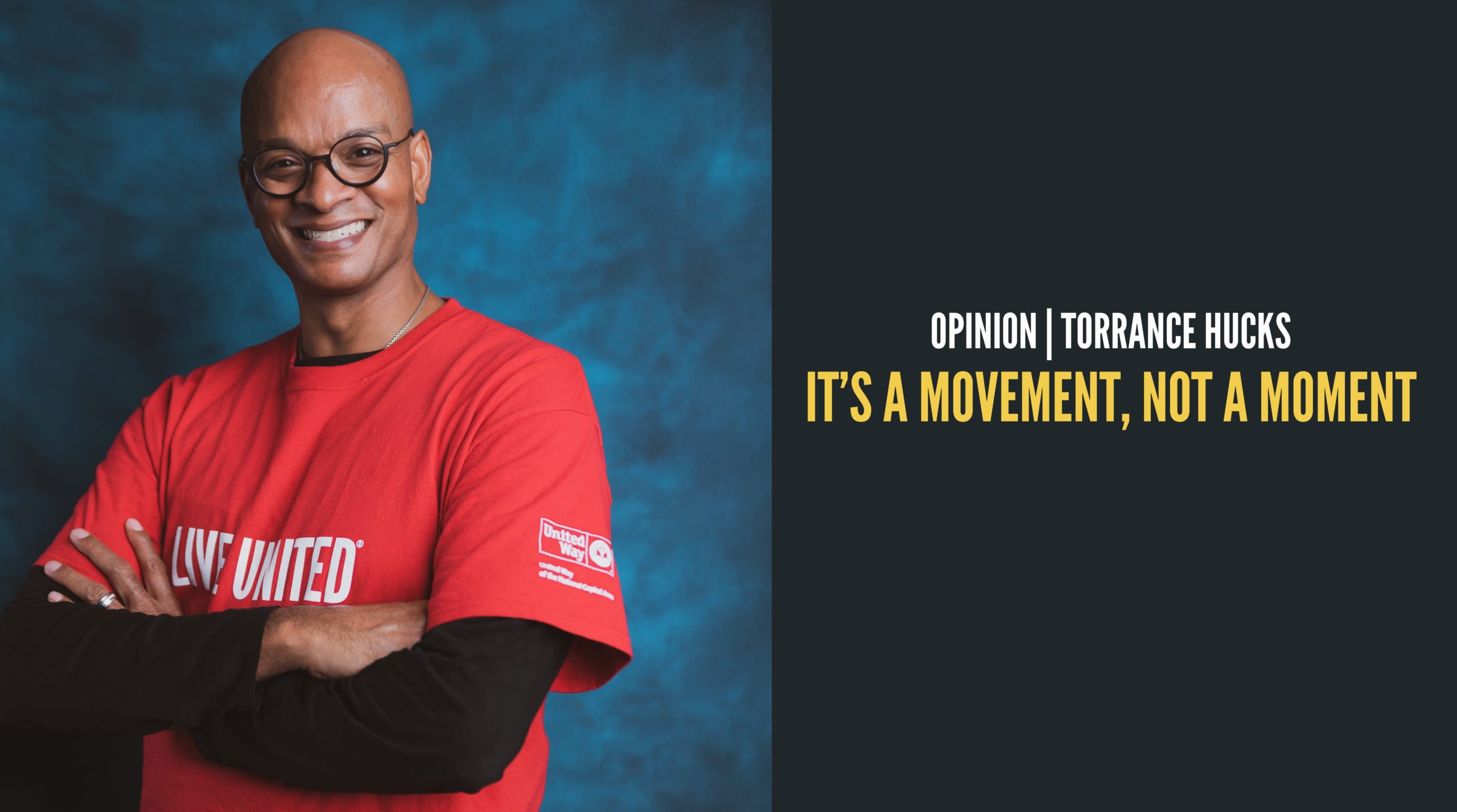It’s A Movement, Not A Moment: United Way NCA Staff Speak Out on Racial Injustice
Jul 21, 2020

By Torrance Hucks, Volunteer Engagement Manager, United Way of the National Capital Area, and resident of Washington, DC
As a kid, I knew there was something different about me. In addition to what I was processing mentally, emotionally, and physically, my body was on the small side topped with a large head and long eyelashes. I was constantly taunted as “Tweety Bird” and bullied for most of my early school years. I remember coming home one day, crying, and my mother asked, “Why are you crying?” A no-nonsense Black woman, she was quick to pull me aside and stress that I needed to stand up to my aggressor. The next day, I saw him on the playground. It was winter in Detroit, I picked up a small block of ice and held it behind my back. As he approached me, I jumped in the air to hurl that iceberg at my bully. I wish I could say that was the last time I got messed with. At least it solved that issue for the moment and I found the strength to stand up for myself.
By the time I reached high school, I had switched schools a few times due to bullying, suspensions, and my parents’ divorce. Freshman year was difficult but my eagerness to be a leader encouraged me to run for student government my sophomore year against a senior. It was with the help and leadership of my high school mentor, Mr. McCoy that helped me succeed that year and continue to become the president of the Student Body Government. That is when I experienced the importance of mentorship.
Following high school, I had my first real traumatic experience with law enforcement. An 8 p.m. curfew was enforced for minors without an adult at an annual event that took place in the historic Greektown district. Now 18, I qualified to chaperone a friend to watch the fireworks. Greektown is known for its shops and eateries. As we strolled the street, we heard someone call out my friend’s name. As we stopped, two female officers behind us pushed up against him, holding a billy club to his back. It was unexpected, and as a reflex, my friend flinched away from the billy club, the situation escalated and he was arrested. Twelve hours later, I paid the $50 fine to have him released and was horribly shocked to see his 16-year-old body badly beaten. Reality set in as I moved forward, knowing ill will would continue to follow me as Black and Gay man. Later while living in an affluent neighborhood, my family spent $15,000 in lawyer fees when police wrongly accused and arrested me for warrants in counties I had never been.
In 1987, as a student at University of Rochester, my friend Kevin invited me to DC, a pivotal point in my life. I attended my first Black Gay Pride event and the city’s diversity was self-affirming as I came out to friends and family. When a scholarship plus the income from working three jobs could no longer support the cost of college tuition, I dropped out. What followed in the years to come were annual trips to DC for Pride and a mash-up of experiences of pain, hardship, love, protests and leadership. I stood with my brothers and sisters during the Million Man March in 1995, participated in many Pride celebrations and peaceful protests, and advocated on Capitol Hill for people impacted by HIV/AIDS. I’ve painfully watched close friends deteriorate from HIV and take their last breath. In 2000, I worked for an employer who held wages from me after termination, causing me to go homeless in the Bay Area. Today I continue to thrive in DC and have found forever love with my partner.
Through all of this I’ve found my strength as a leader, community organizer and catalyst for change. I’ve seen the impact of the protests for my LGBTQ community. My hope is for my Black brothers and sisters to celebrate victory in equity especially in education and the elimination of police brutality, unfair hiring practices and economic disparity here in DC and around the world. What worries me is fatigue that might settle into the White and marginalized protesters standing with us. Trust that I’ve been tired, let down and have felt hopelessness. But I’ve also been uplifted by mentors, my community and family. Let’s remember that this is a movement, not a moment. Continue to protest, call your government leaders and lift the oppressed. And just as important, please vote! We have to keep the momentum and lean on each other for strength. Together we can turn anguish into action—no matter what it takes, get to the polls this November.
This piece is part of a collection of stories told by African American male colleagues at United Way NCA.